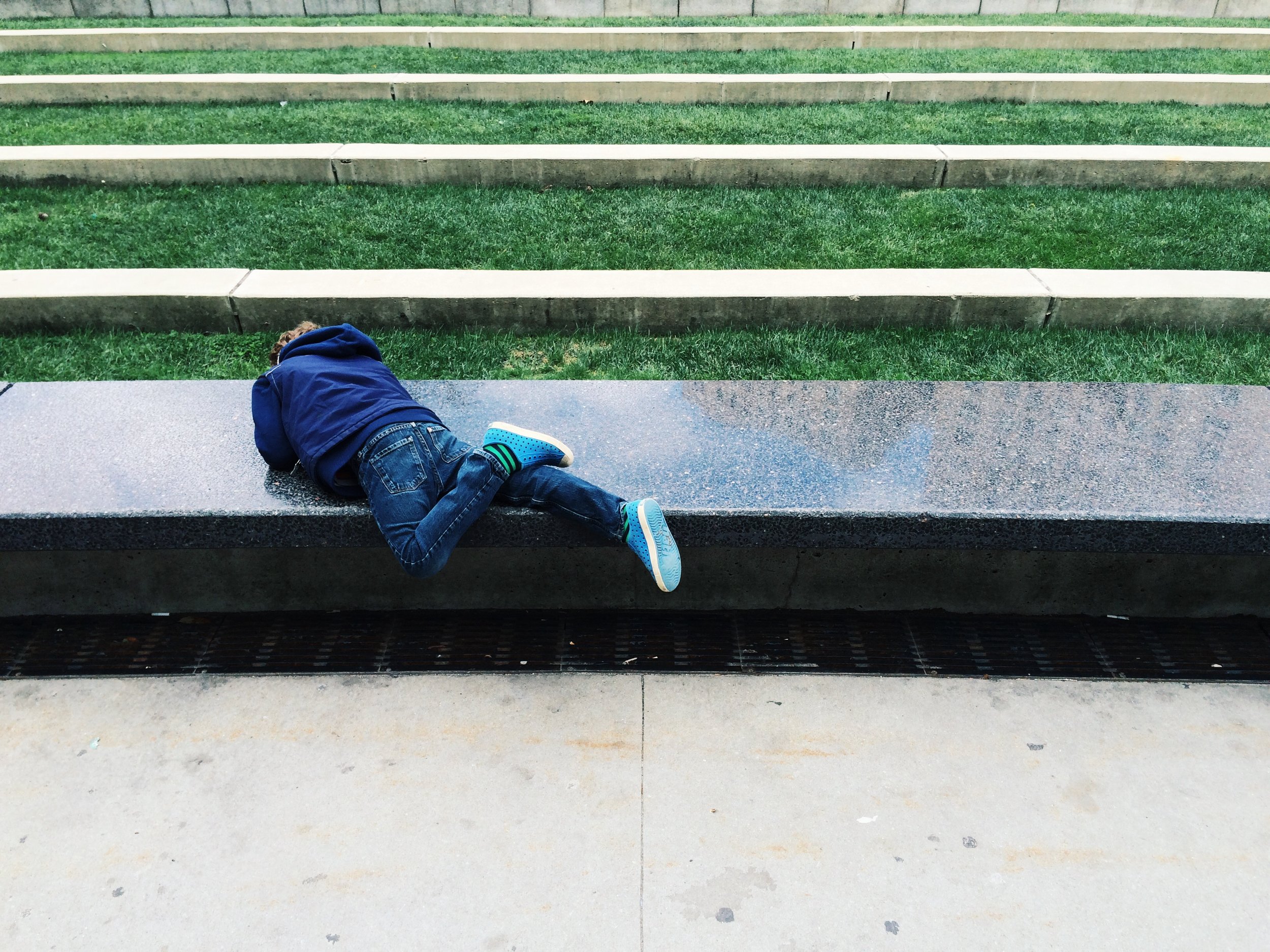If you've read this blog at all, you know I generally try to keep things positive. The reasons for this are many, but for one thing I have no interest in complaining about my son in particular, or autism in general.
But there are tough times, and in the interest of keeping it real, I wanted to discuss this last holiday break for Thanksgiving. There were some wonderful moments and memories, to be sure, but it would be disingenuous to say it was all puppy dogs and lollipops.
This break in schedule — any break in schedule — really messes C up. Routine is his friend, and even a short break really drives him bonkers. This resulted in five days of complete hyperactivity. He was up early — 4 am or thereabouts — and going going going. This means no rest for us. At all. He has to be watched every moment.
Why? These five days were filled with jumping on furniture; writing on furniture; chewing furniture. Putting things in the oven — including an iPod. Flushing foreign objects down the toilet (plumber's on his way today). Stomping on the floor (thankfully our neighbors are very tolerant. Or hearing impaired). Hooting and yodeling at the top of his lungs. Putting gooey things found on the sidewalk in his mouth. Unable to sit and focus for almost any quiet activity. Perseverating on times and dates to the exclusion of nearly anything else. Running into the middle of a busy street for the fun of it. Just going going going.
Then there was the isolation: living in a state of basically always being overwhelmed, we never managed to organize anything at our home, and we weren't comfortable inviting ourselves to someone else's home. Friends say, "It's okay, just bring him along! It'll be fine!" But that means we can't enjoy ourselves at all: we'd have to watch C like hawks, follow him everywhere in a foreign environment (another stress inducer for him, and for us). And, frankly, it's enough to pay a plumber to fix our own toilet; we don't need to do it for someone else's, too. So, going to someone else's home was out — even if we'd been invited.
Normal routines were busted up. Our go-to sensory gym was closed for the holidays (just the time we'd need it most, alas). Social skills class was canceled for the same reason. And to top it off, the Department of Ed scheduled an evaluation for C on Monday, further destroying any semblance of routine. This last item really sent him over the edge: he looks forward to school, and to Mondays in particular, because that is when classroom jobs are assigned. These jobs are very important to C, and so he was utterly distraught and couldn't stop perseverating on it. (My wife finally had the great idea to have C help write an email to his teacher telling her what jobs he wanted for the rest of the week, calming him quite a bit.)
All this acting out was hard on C's twin, too. C's behavior stresses him out, and then he begins to act out, too. Thankfully, as he gets older, M is better able to understand and deal, but it's still touch-and-go.
Whew. Getting that off my chest feels good.
So, gratitude. Yes, there were moments of gratitude, too. I'm grateful that the weather was incredibly nice, allowing me to get C outside for extended periods. I'm grateful to my wife who made a wonderful Thanksgiving meal despite it all. I'm grateful to C for taking one tiny bite of the meal — sweet potatoes with marshmallows. I'm grateful to M for how he's learning to accept his twin. I'm grateful to get back to our routine...until the holiday break, I guess.
But most of all, I'm grateful for our health and general well-being when so many are suffering in unimaginable ways.
Thanks for letting me vent.
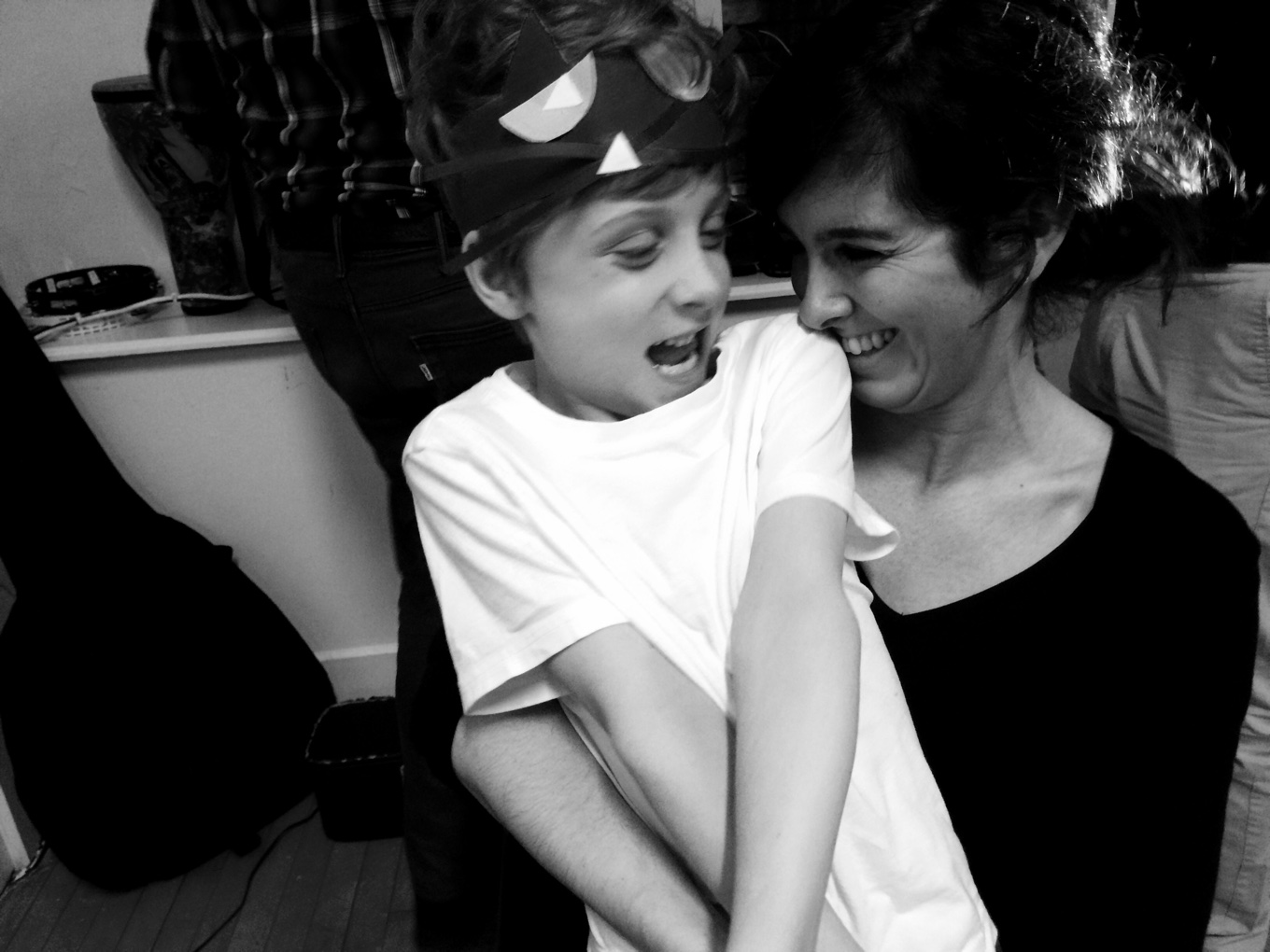 Two years ago, my son's previous school held a holiday concert. C had to be supported on stage by a teacher's assistant because he was so overwhelmed. The concert was loud and chaotic, all the more surprising since his school served children who often have major sensory issues. But his reticence to be part of the event went deeper than that: he was struggling.
Two years ago, my son's previous school held a holiday concert. C had to be supported on stage by a teacher's assistant because he was so overwhelmed. The concert was loud and chaotic, all the more surprising since his school served children who often have major sensory issues. But his reticence to be part of the event went deeper than that: he was struggling.
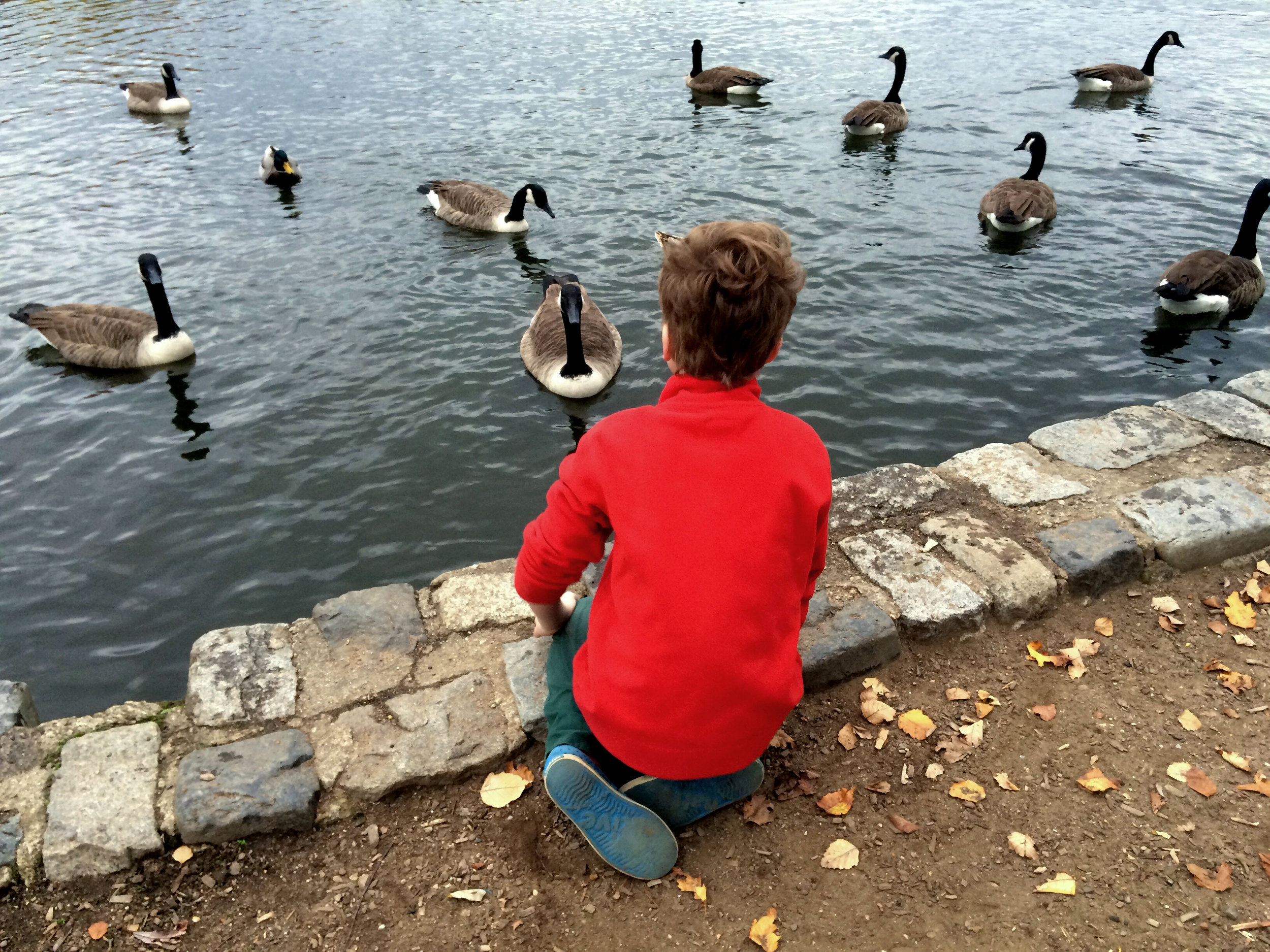 "Let's see the ducks," C says. It's actually more of a demand, and it's the same each time we're at this particular playground, usually after he's had his fill of the cacophony and chaos of other children.
"Let's see the ducks," C says. It's actually more of a demand, and it's the same each time we're at this particular playground, usually after he's had his fill of the cacophony and chaos of other children.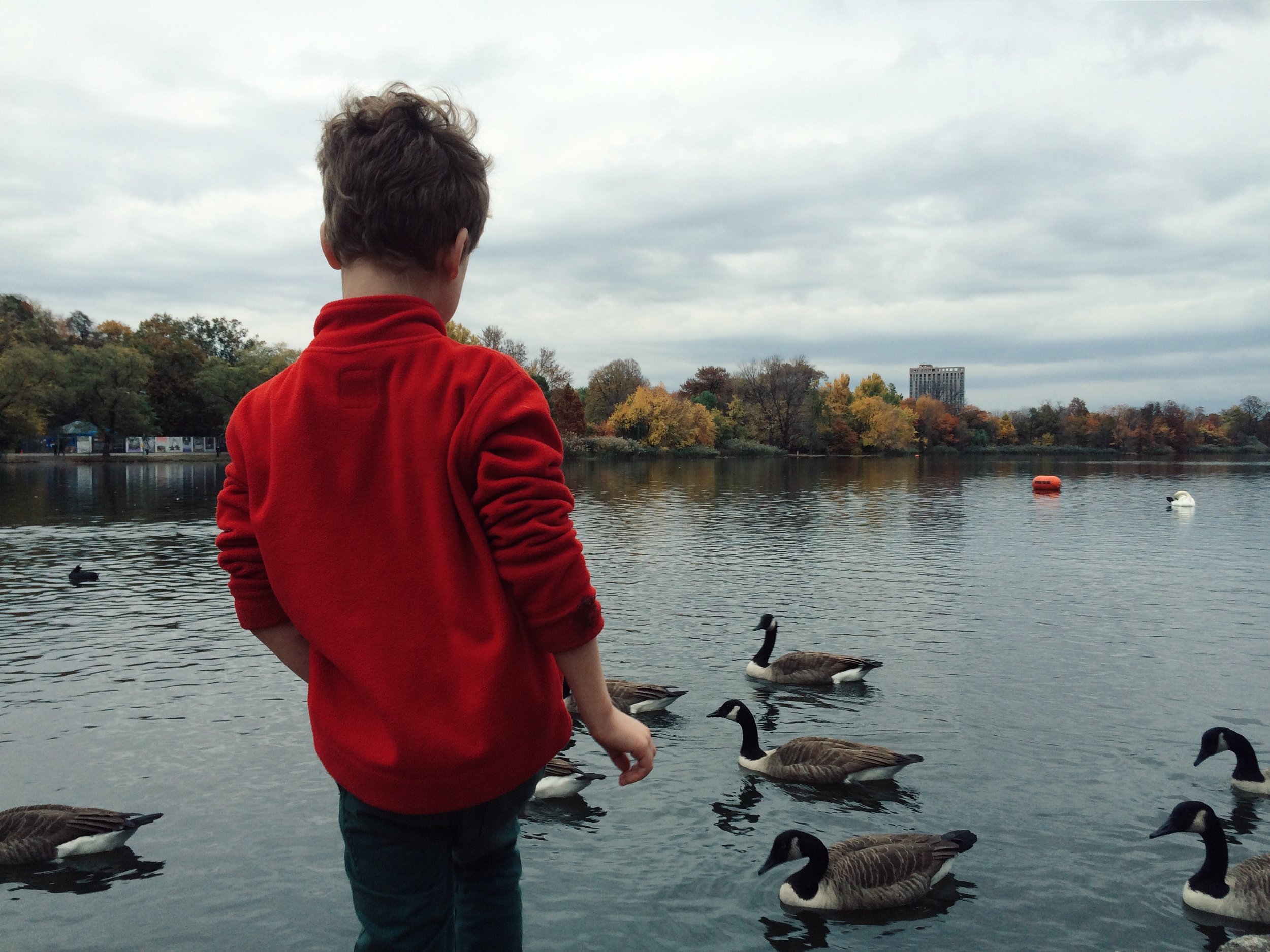
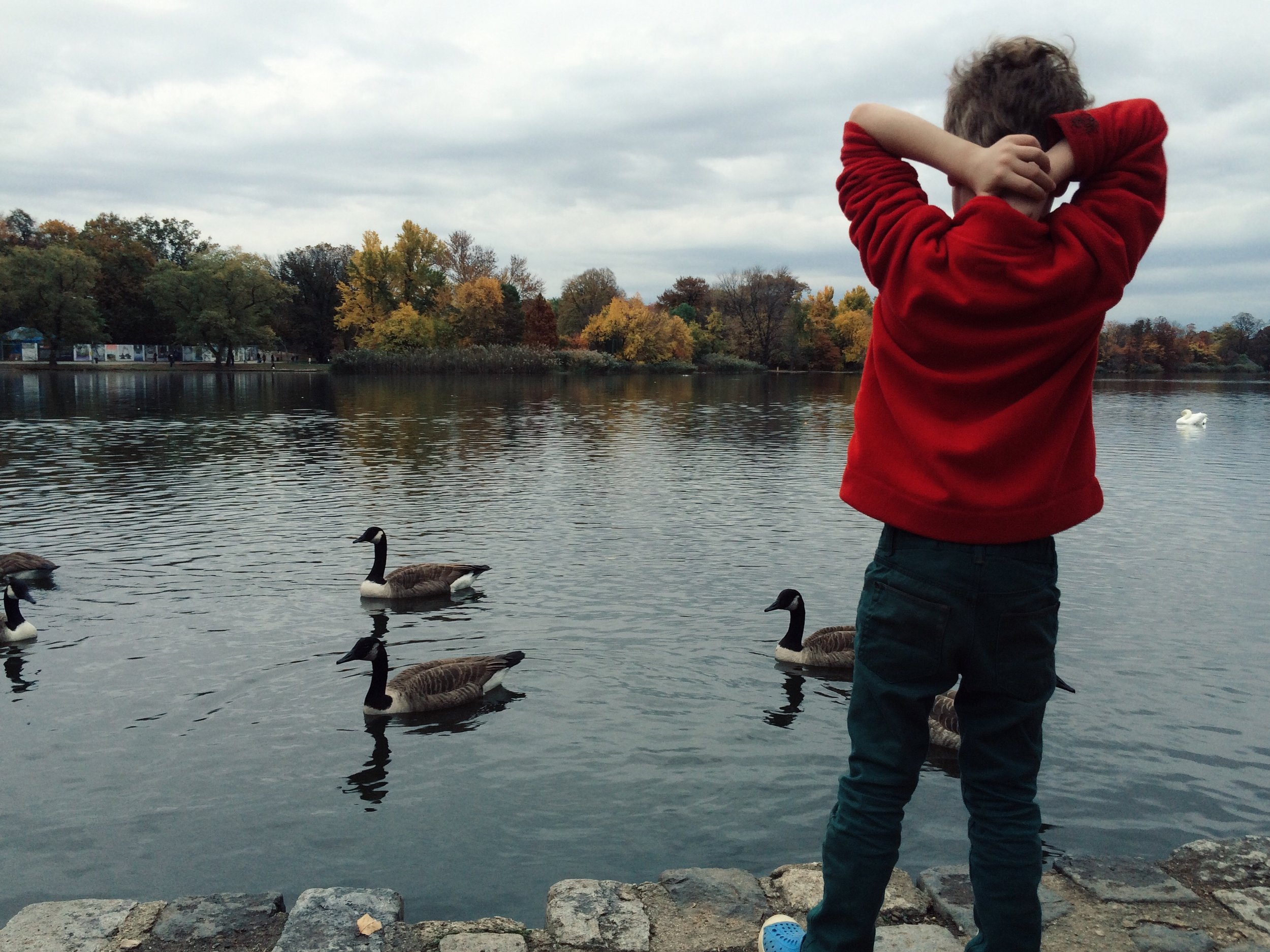
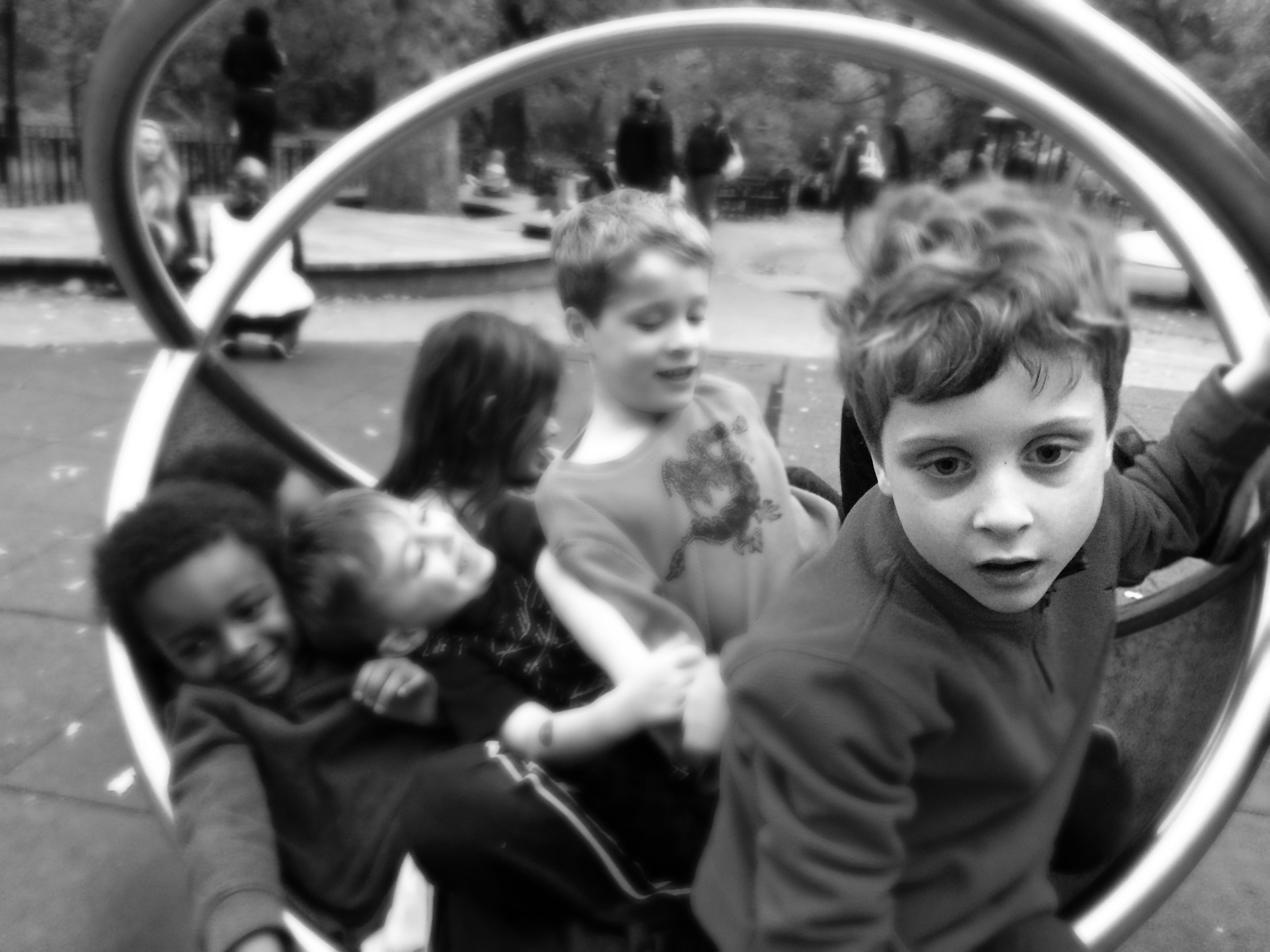
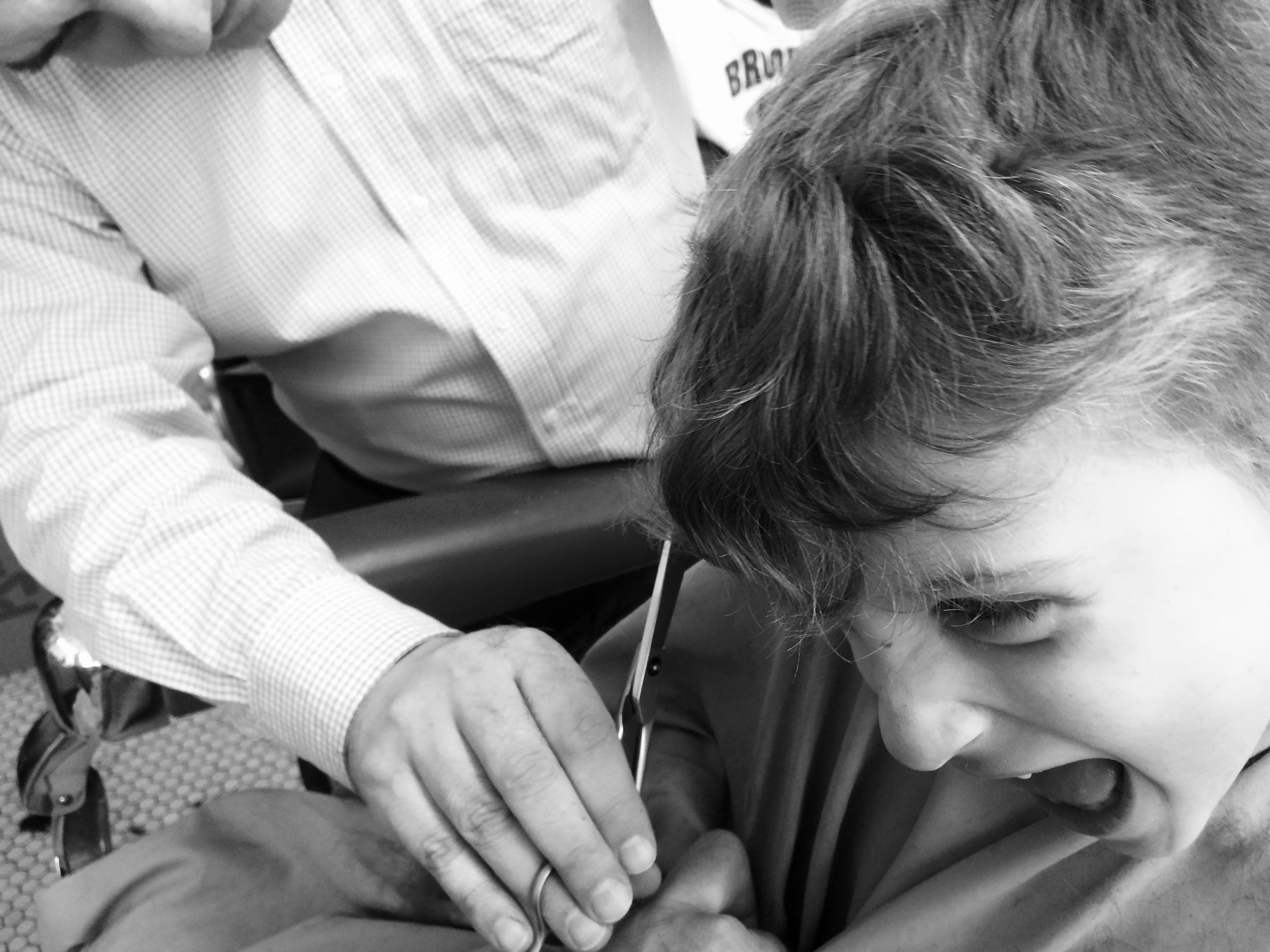 Doctors, dentists, barbers — none are going to get very close to C's head. He ducks and lurches, bobs and weaves like
Doctors, dentists, barbers — none are going to get very close to C's head. He ducks and lurches, bobs and weaves like 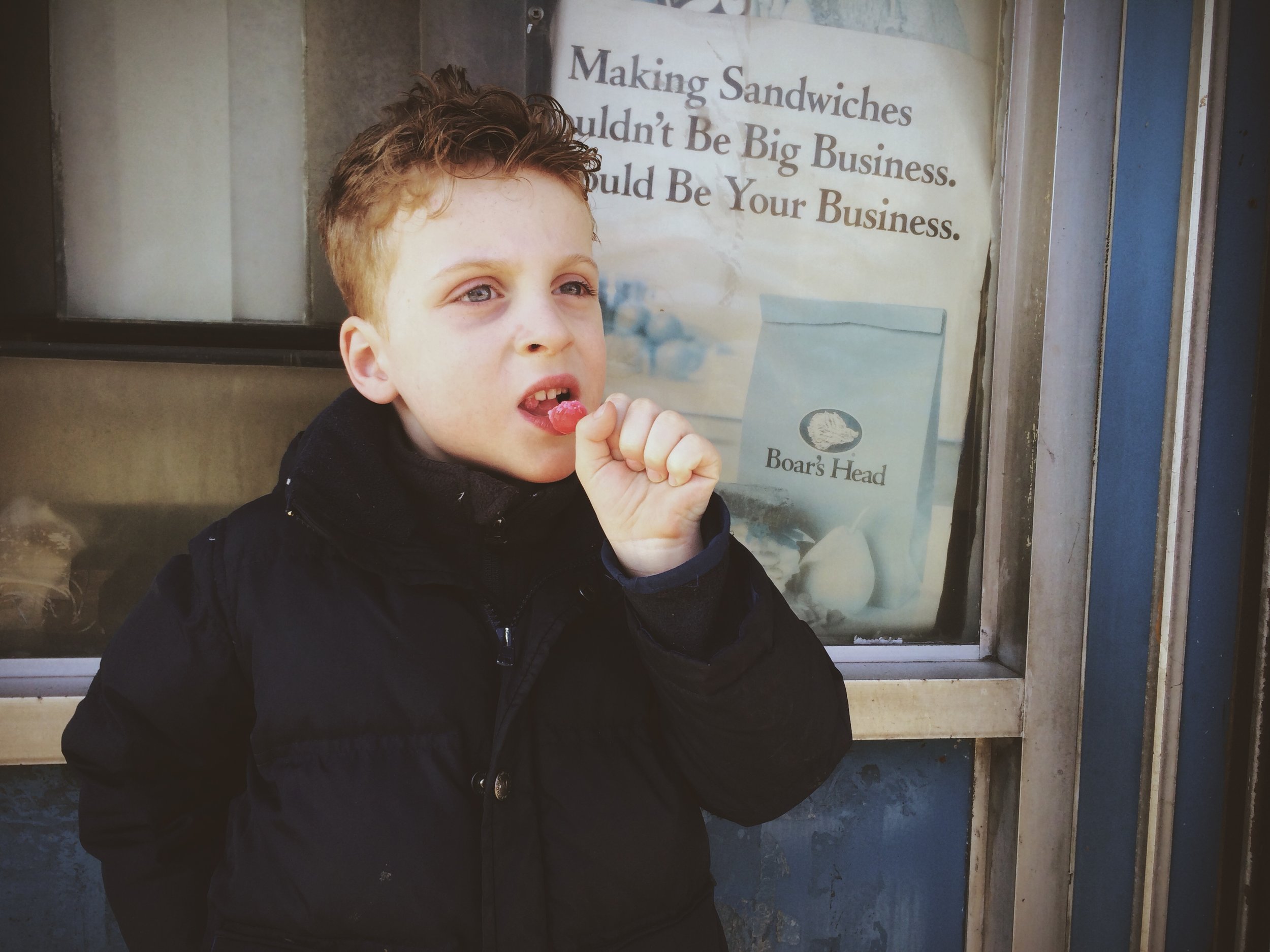
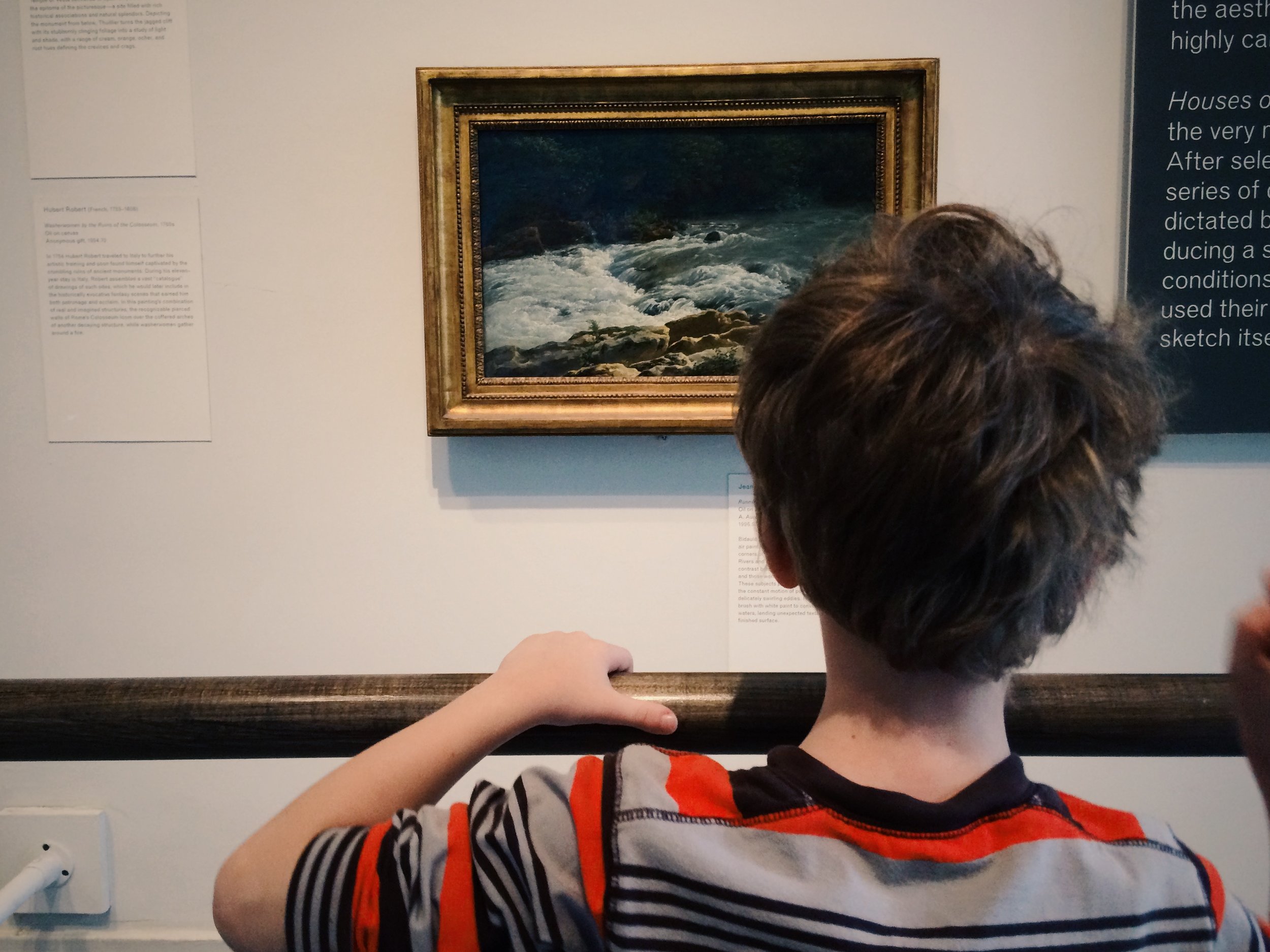 C recently asked to go to the museum "to see the pretty pictures." Mind blown. So off we went.
C recently asked to go to the museum "to see the pretty pictures." Mind blown. So off we went.